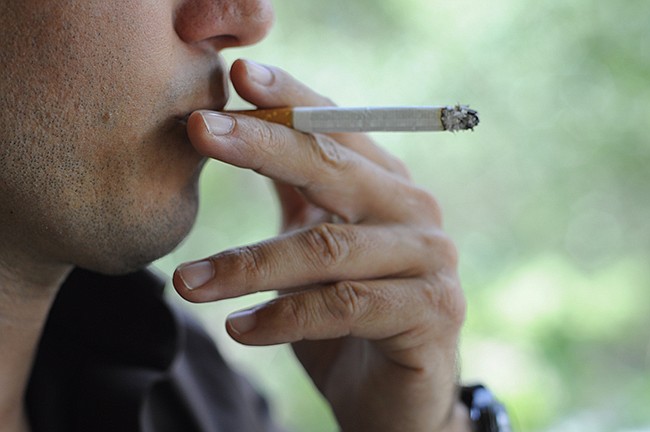- July 26, 2024
-
-
Loading

Loading

You already know tobacco is bad. Tobacco is as addictive as heroin. Smokers die an average of 10 years earlier than nonsmokers. And for every person who dies because of smoking, at least 30 people live with a serious smoking-related illness. Can you list 10 of the problems caused by using tobacco? Tobacco not only causes lung cancers, but also damages the lungs, making asthma worse and causing chronic obstructive pulmonary disease. Did know that it constricts blood vessels and can contribute to hearing loss and blindness? Chewed or smoked, tobacco also increases your risk for cavities, dry wrinkled skin and heart disease. Chewing puts the tobacco, a known cancer causer, right on your mouth tissue, jacking up your risks of mouth cancers. Tobacco users have bigger bellies, weaker immune systems, weaker bones, and slower healing. Women using tobacco have lower estrogen levels and men are more likely to have erectile dysfunction. Not quite the romantic image the tobacco companies promote, huh?
Using tobacco is costly too. With what you could save from not buying tobacco, you could buy a boat! If you smoke in your car, you can’t get as much money for it when you go to sell it. Now employers can charge tobacco-using employees more for company health insurance than nonsmokers. Employees who smoke can be costly, with more absenteeism, more time away from the workstation, and more medical bills. Tobacco use is getting even more expensive.
Are you getting ready to break up with the cruel, addictive master tobacco? If you are a smoker or chewer, you probably have thought of quitting before. It happens in stages. Many tobacco users do not even want to think about giving it up. Then something happens, perhaps you get sick or the cost is too much, and you might start to think about quitting. When you get more serious about quitting, you need to make a plan, a quit strategy. Inching toward quitting, you could pick a quit date as you prepare. Then comes the time to act. The quit days and weeks may be rough, but you have moved into the stage of acting on your wish to be free of tobacco. Quitting takes weeks and may not be a straight path. Cravings, moodiness, irritability are part of the withdrawal process and it is not easy, but you can do it. After getting through the transition, your next challenge is staying tobacco free. Relapses can occur but the determined quitter gets back to trying to be tobacco free. It can take several attempts to really quit.
When you quit tobacco, your body immediately starts to heal. Additionally, you have the powerful sense of being in control of your own life. You walked away from the cruel tobacco master.
Are you ready to be free of the clutches of tobacco? Plenty of resources can help.
• Locally, free classes to help you quit tobacco are offered in multiple locations, with free nicotine patches while supplies last. Find a class near you at ahectobacco.com or call 1-877-848-6696.
• Another resource is the Florida Quitline at tobaccofreeFlorida.com or by calling 1-877-U-CAN-NOW (1-877-822-6669).
• Online, smokefree.gov has a good app for your phone to guide you. It also has a template you can use to make a quit plan as well as great tools and tips to help you with the transition.
Go ahead – get ready for the New Year with a new you. You can do it.
Dr. Nancy Rudner Lugo, local workplace nurse coach with HealthAction.biz, helps individuals and employees understand their health, make healthy choices and achieve their health goals. Send your questions to [email protected]